Homosexuality may not be tolerated in today’s Russia, nor political dissent. Polygamy, though, is a different matter. Ever since news broke this summer of a 57-year-old police chief in Chechnya bullying a 17-year-old local girl into becoming his second wife, Russian nationalists and Islamic leaders alike have been lining up to call for a man’s right to take more than one wife.
Most vocal has been Ramzan Kadyrov, the flamboyant 38-year-old president of Chechnya (part of the Russian Federation), who advocates polygamy as part of ‘traditional Muslim culture’. Veteran ultranationalist politician Vladimir Zhironovsky has long held that polygamy is the solution for ‘Russia’s 10 million unmarried women’. And even Senator Yelena Mizulina, one of the architects of Russia’s anti-gay laws, is sympathetic to the idea. ‘There are not enough men, the kind with whom women would want to start a family and have children,’ Mizulina told the Duma, calling a fellow lawmaker’s plans to make polygamy a criminal offence ‘absurd’.
The latest debate was triggered in May when villagers from the tiny Chechen hamlet of Batarki complained to Novaya Gazeta — one of the few independent news-papers in Moscow — that their chief of police, Nazhud Guchigov, had threatened a local family to hand over their daughter to be his wife, or he would come and claim her by force. Guchigov also allegedly posted policemen around the village to prevent the family of 17-year-old Kheda Goilabiyeva from spiriting her to safety. Bride kidnapping, once a common Caucasian practice, has been illegal in Chechnya since 2010, and in 2012 the legal age of consent was raised to 18. Polygamy is also a civil offence under Russian Federal law — and Guchigov already has a wife and grown-up son. No matter. When the story broke and Moscow liberals began kicking up a fuss, President Kadyrov, not a man to shrink from a fight, stepped in to host the nuptials himself. ‘This is the wedding of the millennium,’ Kadyrov told Russian TV news as Kheda, wearing a traditional head–covering Muslim wedding dress and a look of barely concealed despair, was given away. The pro-Kremlin Life News TV channel quoted the bride as saying that Guchigov was ‘very manly’.
Kheda’s story shows the extent to which Chechnya has become a self-ruling sharia state within Russia. It also shows the strange ideological convolutions of Vladimir Putin’s crusade to lead the world’s conservatives.
Kadyrov came to power in 2004 after the assassination of his father, Ahmad Kadyrov, the Grand Mufti of Chechnya, who headed a Moscow-backed government that pro-independence Chechens denounced as quislings. Kadyrov Jr has banned alcohol, un-Islamic dress in government offices, and even energy drinks. Restaurants are closed in Ramadan and Chechen police have been filmed shooting immodestly dressed women with paintball guns. Kadyrov’s brutal security forces have ignored Russian law, punishing the families of Islamist terror suspects by blowing up their houses and refusing to hand over Chechen suspects to Russian investigators.
A recent analysis by the International Crisis Group entitled ‘Chechnya: The Inner Abroad’ describes the republic as ‘a virtually independent polity, with its own ideology, religious policy, security structures, economy and laws’. In truth, Vladimir Putin — whom Kadyrov describes as ‘a second father’ — has little choice but to support his local strongman’s tactics and to allow his writ to overrun Russian law, whether on polygamy or his brutal security methods. What’s strangest of all about the chorus of approval for Kadyrov’s polygamy initiative from Kremlin-supporting media and politicians is that Putin also styles himself as a defender of Russia’s Christian values. Certainly many of Putin’s European admirers see him as a kind of Christian warrior. Nigel Farage said earlier this year that ‘in the war against Islamic extremism, whatever we may think of him as a human being, [Putin] is actually on our side’. And Matteo Salvini of Italy’s Northern League believes that Russia is ‘the main bulwark against the spread of barbaric, Islamic extremism.’
The apparent paradox between Putin’s toleration for Kadyrov’s brand of sharia and his stance as defender of the Orthodox faith makes more sense if one views it in context of the Kremlin’s quest to find new friends now that the annexation of the Crimea has soured relations with the US and Europe. Putin’s been making a special effort to reach out to Muslim allies. In June, prominent Russian Orthodox clerics and Muslim religious leaders from as far afield as Syria and Indonesia attended a meeting in Moscow on Russia’s ‘strategic partnership’ with the Islamic world. A giant new mosque is due to open in Moscow in September.
Supporting polygamy is part of the Kremlin’s international culture war against western values — in the same way that the Russian state’s crusade against gay rights is used as a tool of cultural diplomacy. The Kremlin has spent considerable diplomatic capital placing Moscow front and centre of a worldwide pushback against gay marriage. In July, a Russian-led alliance of conservative Muslim and African states voted through a motion in the United Nation’s Human Rights Council lauding the conventional family — overriding European and US attempts to validate gay partnerships.
If he chose to, Putin could make a case that polygamy has a long tradition in Russia. Prince Vladimir of Kiev, who brought Orthodox Christianity to Russia in 988, had hundreds of concubines and was ‘insatiable in fornication’, according to the 12th-century Primary Chronicle. Polygamy was also legal under the Russian Empire. The practice was suppressed by the Bolsheviks in the name of women’s liberation. But polls show that popular support for polygamy is falling — even though Russia’s 16 million-strong Muslim population has been growing faster than any other demographic group. In 1999, 58 per cent of Russians were in favour of legalising it for their Muslim countrymen — but in a survey this year 58 per cent were against (over 85 per cent of respondents opposed polygamy for Russians in both surveys). What’s changed is that polygamy’s advocates — primarily Kadyrov — increasingly need to be placated. And the Kremlin sees a domestic and international benefit in tolerating the notion.
What’s perhaps most surprising about the whole affair is that Putin — who came to power thanks to a war to curb Chechen independence and Islamic radicalism — condones and supports behaviour which runs contrary not only to Russian law but to the Christian values he claims to espouse. Could it be that for the Kremlin, questions of law, God and ideology come second to the political expediency of the moment?
Got something to add? Join the discussion and comment below.
Get 10 issues for just $10
Subscribe to The Spectator Australia today for the next 10 magazine issues, plus full online access, for just $10.
You might disagree with half of it, but you’ll enjoy reading all of it. Try your first month for free, then just $2 a week for the remainder of your first year.

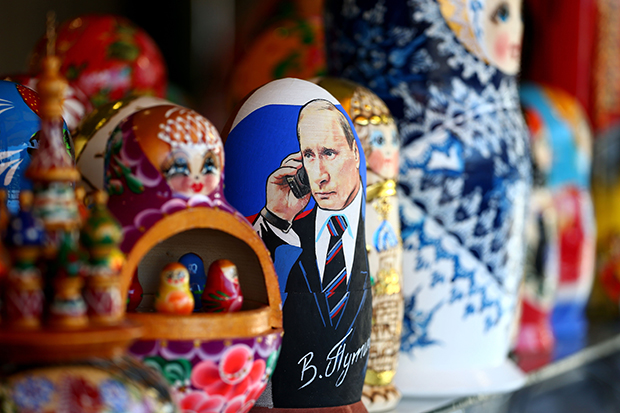

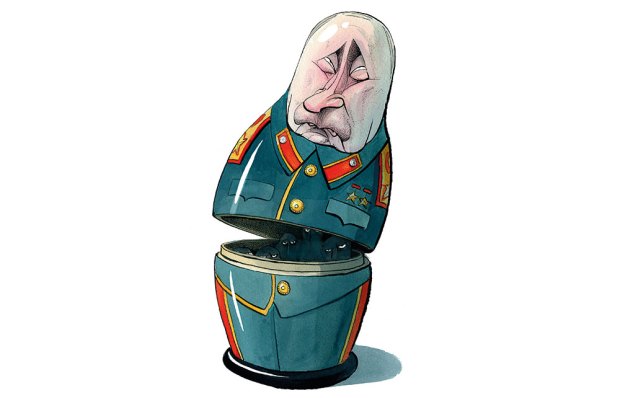
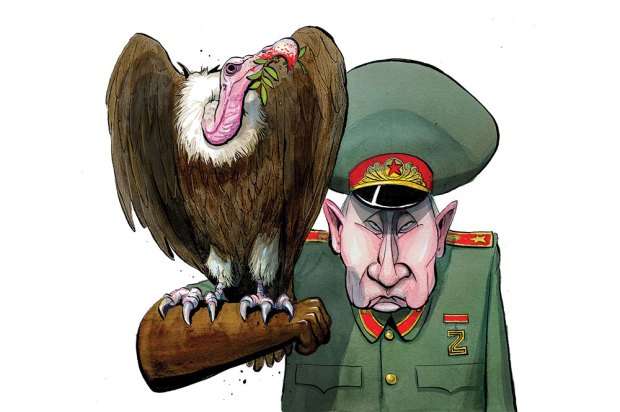
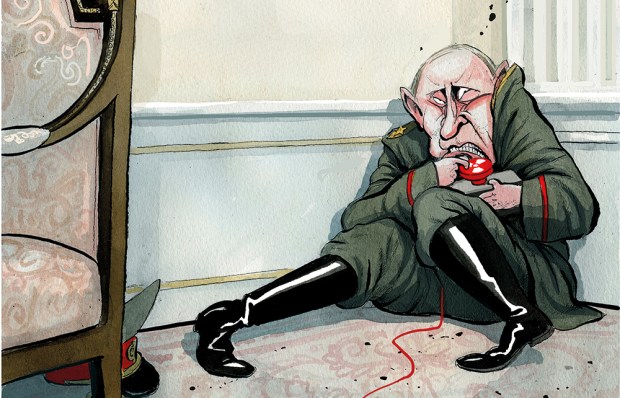
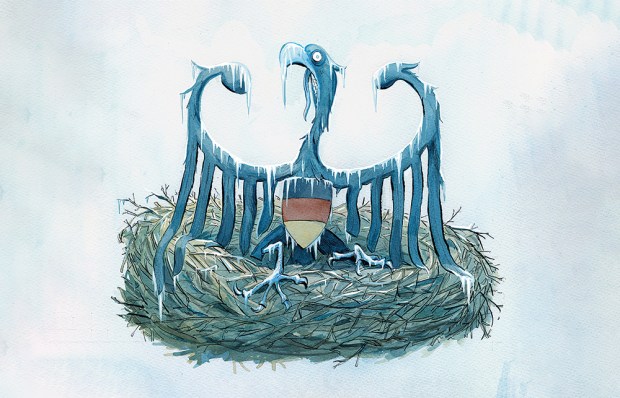







Comments
Don't miss out
Join the conversation with other Spectator Australia readers. Subscribe to leave a comment.
SUBSCRIBEAlready a subscriber? Log in